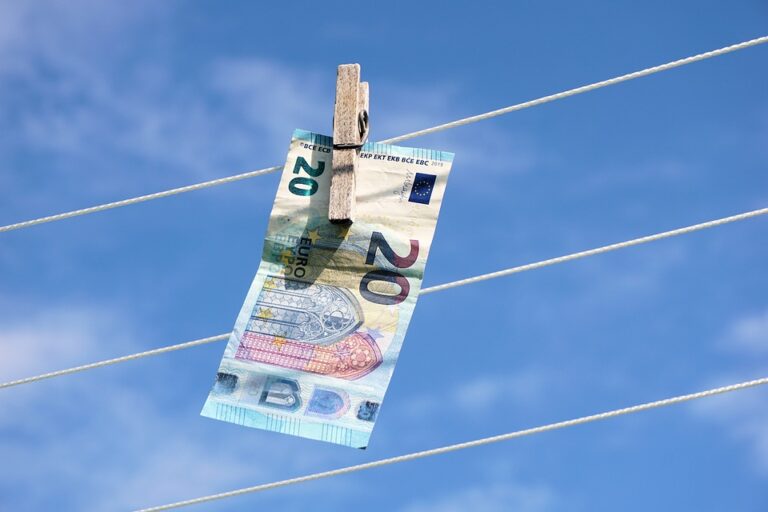Last updated Jul. 1, 2024 by Peter Jakes
116 Creative Ways To Save Money On A Tight Budget (2023)
In today’s rapidly changing economic landscape, it’s more important than ever to find creative ways to manage and save money, especially if you’re on a tight budget. Whether you are looking to save on everyday expenses, reduce your monthly bills, or build a financial buffer for unexpected situations, we’ve compiled a comprehensive list of 116 actionable and creative tips to help you save more effectively.
1. Create a Budget
Keep track of your income and expenses to identify areas where you can cut back.
2. Use Coupons
Find printable and digital coupons before making purchases.
3. Meal Prep
Prepare meals ahead of time to avoid eating out.
4. Cook at Home
Eating out is more expensive than cooking at home.
5. Buy Generic Brands
Opt for generic instead of name-brand products to save money.
6. Use Cashback Apps
Apps like Ibotta or Rakuten give you cash back on purchases.
7. Shop Second-Hand
Purchase clothes and household items from thrift stores.
8. DIY Projects
Do-it-yourself projects can save you money on home improvements.
9. Side Hustles
Pick up a part-time job or a freelance gig to boost your earnings.
10. Cancel Unused Subscriptions
Evaluate and cancel any subscriptions you no longer need.
11. Bulk Buying
Buy non-perishable items in bulk to save per unit.
✓ Short Answer
Find creative ways to manage and save money with tips like creating a budget, using coupons, meal prepping, and exploring side hustles. By adopting simple strategies such as bulk buying, DIY projects, and cancelling unused subscriptions, you can significantly reduce your expenses and improve your financial stability.
12. Energy-Efficient Appliances
Invest in energy-efficient appliances to reduce utility bills.
13. Low Flow Fixtures
Install low-flow showerheads and faucets to cut down on water use.
14. Cloth Diapers
Switch to reusable cloth diapers to save on baby costs.
15. Ride a Bike
Save on gas and vehicle wear and tear by biking for short trips.
16. Public Transit
Use public transportation to save on fuel and parking fees.
17. Negotiate Bills
Call service providers to negotiate lower rates.
18. Free Activities
Explore free community events and activities for entertainment.
19. Library Membership
Borrow books, DVDs, and other media from the library instead of buying.
20. Save Bonuses and Raises
Instead of inflating your lifestyle, save any extra income you receive.
21. Homemade Gifts
Make gifts at home to save on expensive store-bought items.
22. Bundle Insurance
Combine home, auto, and other insurance policies for discounts.
23. Use a Programmable Thermostat
Adjust your home’s temperature automatically to save on heating/cooling bills.
24. Refinance Debt
Consider refinancing high-interest debt to lower rates.
25. Avoid ATM Fees
Use in-network ATMs or opt for cashback at stores.
26. Digital Wallets
Use digital wallets to track spending and manage finances efficiently.
27. Online Bill Pay
Save on stamps and late fees by paying bills online.
28. Cancel Gym Membership
Exercise at home or outside instead of paying for a gym.
29. Water Filter
Use a water filter instead of buying bottled water.
30. DIY Beauty Treatments
Save on beauty treatments by doing them at home.
31. Carpool
Share rides to work to save on gas.
32. Automatic Savings
Set up automatic transfers to your savings account each payday.
33. Cut Cable
Opt for streaming services instead of expensive cable packages.
34. Phone Plans
Switch to a cheaper mobile phone plan.
35. Grow Your Own Food
Start a garden to reduce your grocery bill.
36. No Spend Days
Designate days where you don’t spend any money.
37. Limit Credit Card Usage
Use cash or debit to avoid accumulating high interest debt.
38. Cash Only Budgeting
Withdraw a set amount of cash for your weekly budget to limit spending.
39. Sell Unused Items
Sell items you no longer need through apps or garage sales.
40. DIY Cleaning Products
Make your own cleaning products with household ingredients.
41. Air Dry Laundry
Hang clothes to dry instead of using the dryer.
42. Tax Deductions
Ensure you are claiming all eligible tax deductions.
43. Used Electronics
Consider buying refurbished or used electronics.
44. E-books and Audiobooks
Find free e-books and audiobooks from libraries or online resources.
45. Discount Cards
Use student, senior, or military discount cards if applicable.
46. Holiday Sales
Shop during sales to get the best deals.
47. Price Compare
Use comparison websites to get the lowest prices on goods.
48. Reduce Alcohol
Cut back on buying alcohol or opt for cheaper brands.
49. Brew Coffee
Make coffee at home instead of buying from coffee shops.
50. Homemade Snacks
Prepare snacks at home to avoid expensive convenience snacks.
51. Budget-Friendly Travel
Look for deals, use points, or find budget-friendly destinations.
52. Car Maintenance
Regularly maintain your car to avoid costly repairs.
53. Subscription Boxes
Cancel subscription boxes if they are not essential.
54. Plan Purchases
Plan major purchases to coincide with sale periods.
55. Minimalist Lifestyle
Live minimally by purchasing only what you need.
56. DIY Repairs
Learn to fix simple issues around your home.
57. Holiday Budget
Set a holiday budget to avoid overspending.
58. Entertainment Subscriptions
Evaluate and limit entertainment subscriptions.
59. Workplace Benefits
Utilize any benefits or discounts offered by your employer.
60. Avoid Impulse Buys
Stick to a shopping list to avoid unplanned purchases.
61. Single-Ply Toilet Paper
Switch to single-ply toilet paper or look for sales on bulk orders.
62. Discount Stores
Shop at discount grocery stores or successful bargain hunts.
63. DIY Haircuts
Cut your own hair or family members’ hair at home.
64. Financial Coaching
Seek free or low-cost financial advice.
65. Barter Services
Exchange services with neighbors or friends to save money.
66. Limit Eating Out
Reserve eating out for special occasions.
67. Membership Discounts
Take advantage of memberships like AAA for discounts.
68. Review Insurance Policies
Make sure you’re not over-insured or paying for unnecessary coverage.
69. Free Samples
Look for free samples of new products online.
70. Upcycle Old Items
Upcycle furniture and other items instead of buying new.
71. Stay Healthy
Prevent medical expenses by living a healthy lifestyle.
72. Use Prepaid Cards
Use prepaid cards to control spending.
73. Community Resources
Visit community centers for free or low-cost services.
74. Fashion Swaps
Swap clothes with friends to refresh your wardrobe.
75. Generic Prescriptions
Ask your doctor for generic medication alternatives.
76. Vehicle Sharing
Use car-sharing services if you don’t need daily use of a car.
77. Utility Bill Review
Regularly review utility bills for errors or unnecessary charges.
78. Buy Reusable Items
Invest in reusable items instead of single-use products.
79. Avoid Fee-Based Checking
Opt for free checking accounts to avoid unnecessary fees.
80. Wedding Budget
Plan a wedding with a strict budget to manage costs.
81. Use a Thermos
Take a thermos of coffee or tea to work rather than buying drinks.
82. Plan Weekly Menus
Plan your meals for the week to avoid last-minute takeout.
83. Clean Out the Pantry
Use what you have before buying more food.
84. Solar Energy
Consider solar panels for long-term savings on electricity.
85. Opt for Minimalist Gifts
Choose experience-based gifts instead of physical items.
86. Use Free Apps
Take advantage of free apps for budgeting and financial planning.
87. Staycation
Vacation at home or nearby instead of spending money on travel.
88. Rebate Programs
Participate in rebate programs for cash back on purchases.
89. Ask for Discounts
Don’t be afraid to ask for discounts or price matches.
90. Consider Roommates
Share housing costs by having roommates.
91. Hygiene Products
Buy hygiene products in larger quantities to save.
92. Shop Clearance
Always check clearance sections for deals.
93. Holiday Decorations
Make your own or buy from thrift stores.
94. Manufacturers’ Coupons
Check manufacturers’ websites for additional coupons.
95. Utility Assistance Programs
Look for local programs offering aid for utility bills.
96. Car Insurance Deductibles
Raise deductibles on insurance policies for lower premiums.
97. Online Banking
Use online banking to track expenses and avoid fees.
98. Tax Refund
Save your tax refund instead of spending it.
99. Conference Calls
Use free or low-cost conference call services.
100. Community Gardens
Participate in community gardens to grow food.
101. Composting
Use composting to reduce waste and save on gardening costs.
102. Budget Alerts
Set alerts on your bank accounts to detect overspending.
103. Join Rewards Programs
Take advantage of store rewards programs for savings.
104. Affordable Insurance
Review and switch to more affordable insurance options.
105. Buy Generic Medicine
Opt for generic medicine alternatives where available.
106. Eat Seasonally
Purchase seasonal produce for lower prices and better quality.
107. Car Leases
Consider leasing a car if it’s more cost-efficient for your lifestyle.
108. Laundry Efficiency
Wash clothes in cold water and run full loads to save on utilities.
109. Invest Wisely
Look into low-risk investment options to grow your savings.
110. Financial Education
Educate yourself on personal finance through free courses.
111. Dining Discounts
Look for early bird specials or dining coupons.
112. Shop Off-Season
Buy items out of season when they are significantly discounted.
113. Employee Discounts
Use any available employee discounts on goods and services.
114. Negotiate Salaries
Don’t be afraid to negotiate salaries or ask for raises.
115. Homemade Laundry Soap
Make your own laundry detergent to cut costs.
116. Electric Saver Devices
Use devices to monitor and save on electricity usage.
FAQs
Q: How can I start saving money on a tight budget?
A: Begin by creating a budget to track your income and expenses. Identify areas where you can cut back and incorporate small, manageable saving habits, such as meal prepping, using coupons, and cutting unnecessary subscriptions.
Q: Are there apps that can help me save money?
A: Yes, there are several apps designed to help you save money, including cashback apps like Ibotta and Rakuten, budgeting apps like Mint, and loyalty programs from various retailers.
Q: How much can I realistically save by following these tips?
A: The amount you can save varies based on your current spending habits and fidelity to the tips. However, many people can save hundreds to thousands of dollars annually by implementing these strategies.
Q: What if my income is too low to save any money?
A: Even with a low income, small changes can add up. Focus on prioritizing essential expenses, finding side hustles, and utilizing community resources and assistance programs to ease financial pressure.




